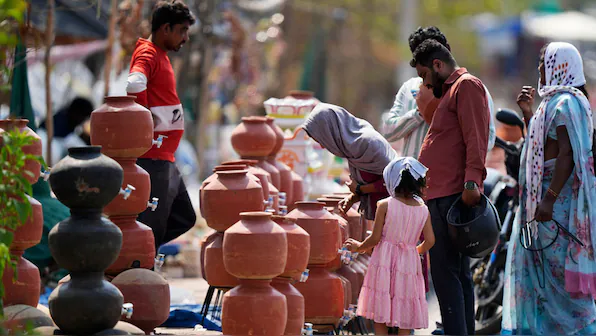In a sobering forecast, 80% of leading climate scientists predict that global temperatures will surpass 2.5°C, with nearly half anticipating an increase of at least 3°C. This alarming projection portends a future marked by extreme heatwaves, severe food shortages, and widespread societal disruptions. The scientific community stresses the urgent need for action to mitigate these impending crises and safeguard the planet’s future.
This Year’s Devastating Heatwaves: A Grim Preview
The unprecedented heatwaves that swept across the globe this year offer a stark glimpse into this harrowing future. India, Pakistan, Bangladesh, China, and parts of Europe faced relentless temperatures, pushing societies and ecosystems to their limits.
India and Pakistan experienced record-breaking heat, with temperatures soaring above 50°C in some regions. The intense heat led to widespread health crises, water shortages, and significant impacts on agriculture, exacerbating food insecurity in already vulnerable populations.
Bangladesh also suffered under extreme heat, compounding the challenges faced by this low-lying nation already grappling with rising sea levels and frequent flooding. The heatwaves intensified the strain on infrastructure and public health systems, highlighting the urgent need for comprehensive climate resilience strategies.
China saw unprecedented temperatures across many provinces, disrupting daily life and causing severe stress on energy grids as millions relied on air conditioning to cope. The heat also affected agricultural production, threatening food supply chains both domestically and internationally.
Europe was not spared, with countries like Spain, Italy, and Greece enduring scorching heatwaves that fueled wildfires, strained health services, and led to thousands of heat-related deaths. The European continent’s infrastructure and urban planning were put to the test, revealing significant vulnerabilities in the face of escalating climate extremes.
The Path Forward
Experts warn that these events are merely a precursor to more frequent and severe climate-related disasters unless urgent and decisive action is taken. They call for robust international cooperation and immediate implementation of sustainable practices to curb greenhouse gas emissions, enhance climate resilience, and ensure food and water security for all.
The time to act is now, scientists emphasize, to prevent the dire future they predict from becoming an unavoidable reality.



